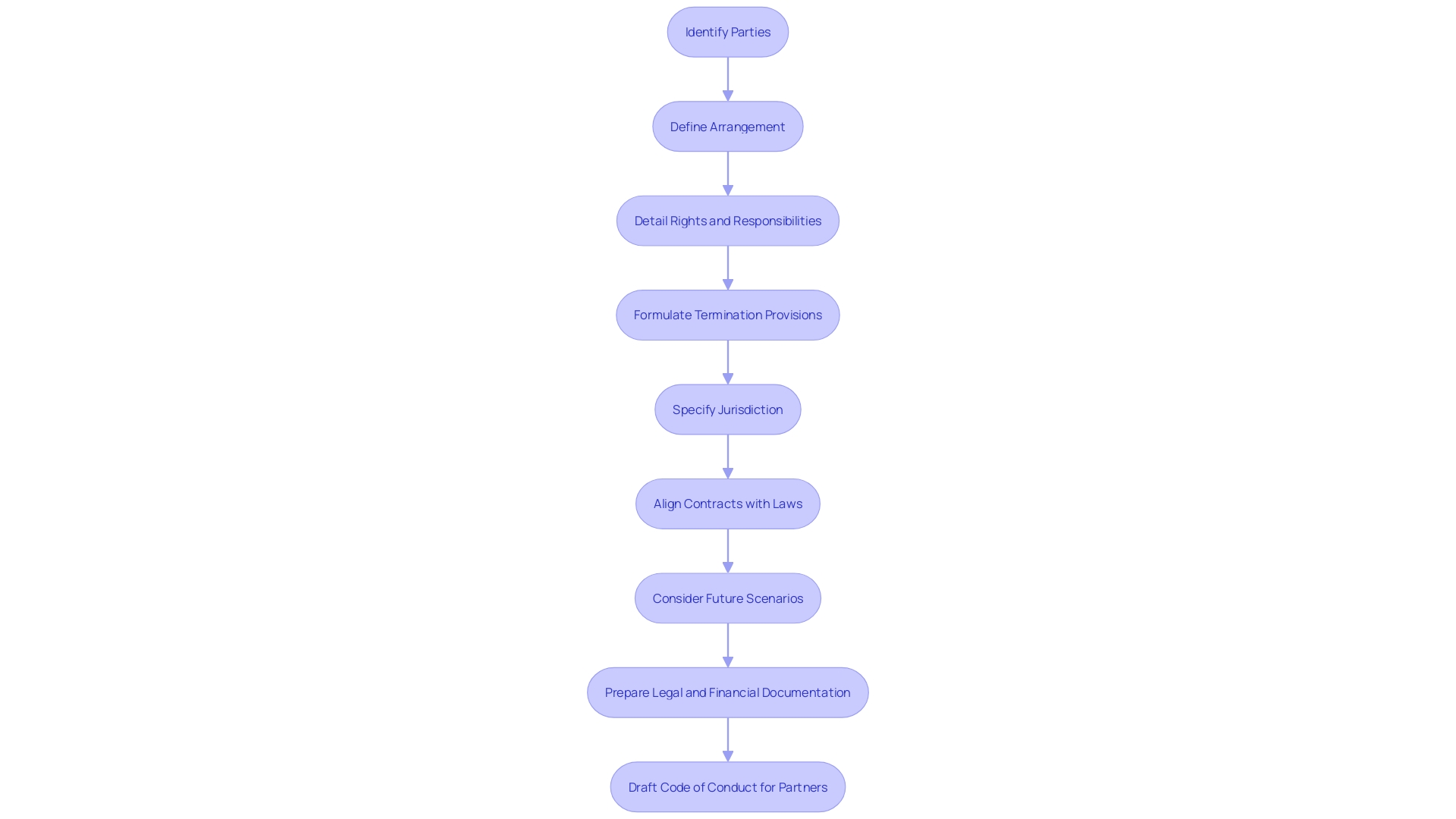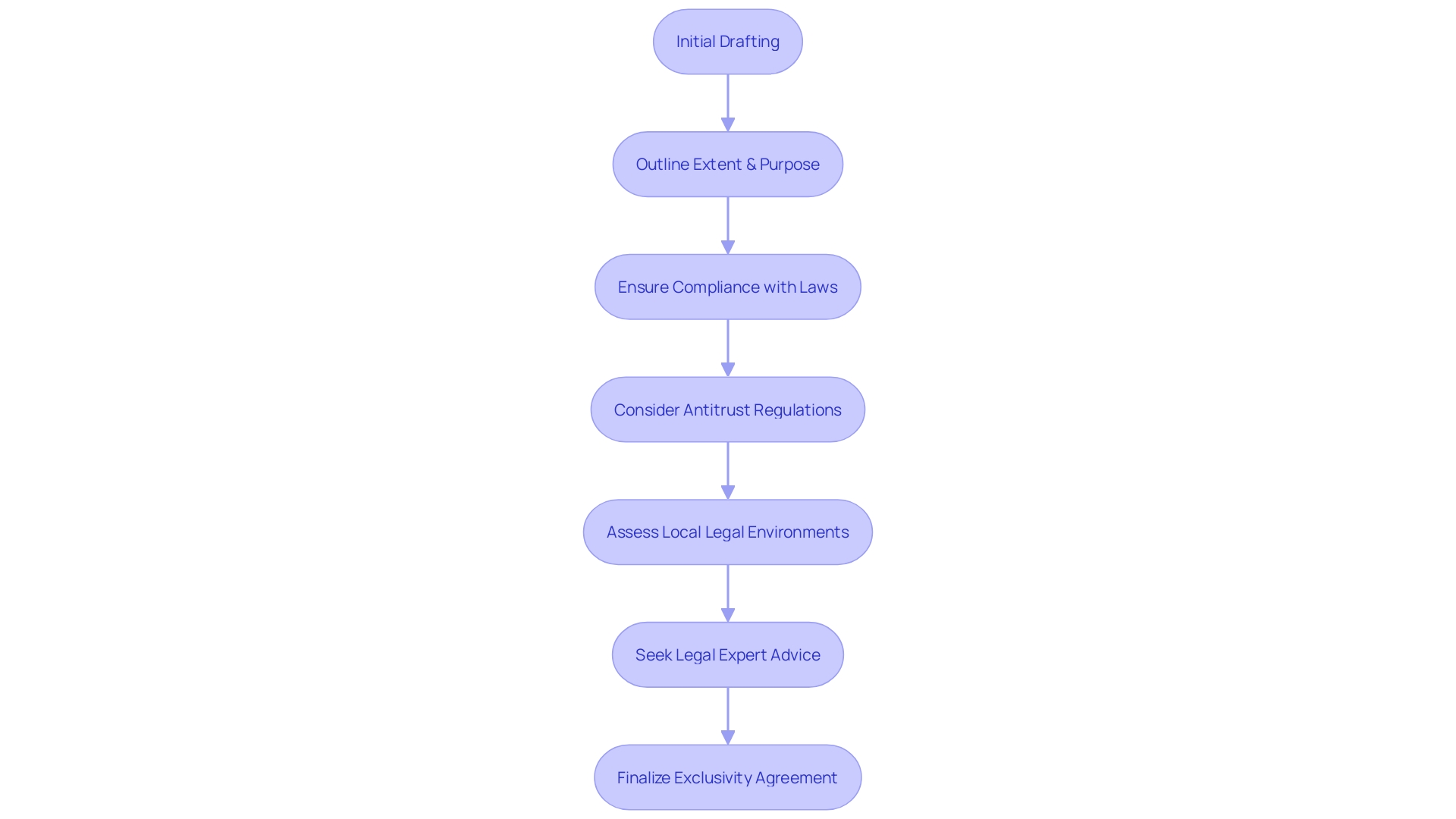Creating an Effective Exclusivity Agreement Template

Introduction
Navigating the intricacies of exclusivity agreements can be a game-changer for B2B engagements, as these contracts carve out a space where one company holds the sole right to market, distribute, or sell a service or product within a predetermined territory or market. These agreements not only secure a competitive edge but also safeguard the interests of all involved entities. Leveraging data from over 1,000 contracts on the Common Paper platform, insights reveal the need for Chief Marketing Officers (CMOs) to pay meticulous attention to the duration, location, and pricing strategies when crafting or reviewing such agreements.
In this dynamic landscape, understanding the nuances of exclusivity agreements and pricing strategies is not just a matter of legal compliance but a strategic imperative that can significantly influence a company’s market position and financial health.
Understanding Exclusivity Agreements
Understanding the intricacies of exclusive arrangements can be a game-changer for B2B engagements, as these arrangements establish a territory or market where one company has the sole privilege to promote, distribute, or sell a service or product. These contracts not just ensure a competitive advantage but also protect the interests of all parties involved.
Using data from over 1,000 contracts on the Common Paper platform, insights show that the most common variations in Non-Disclosure Agreements (NDAs), a key element in contracts for privacy, revolve around the duration and location in relation to governing laws and jurisdiction. This emphasizes the need for Chief Marketing Officers (CMOS) to pay meticulous attention to these details when crafting or reviewing such agreements.
Recent shifts, such as the Information Blocking rules from the 21st Century Cures Act, underscore the importance of fair and consistent pricing strategies. With conditions that fees must be determined by verifiable expenses and not show bias against rivals, CMOS must guarantee that their B2B pricing strategies are clear and in accordance with the rules, particularly when involved in wider agreement arrangements.
In the midst of these frameworks, businesses are increasingly exploring innovative funding models and pricing solutions like reference-based pricing (RBP) to control costs and maximize value. A case study from Huffines Auto Dealerships showcases the successful implementation of RBP, achieving cost reduction while enhancing benefits—illustrating the tangible impact of strategic pricing within exclusive arrangements.
In the dynamic landscape of B2B transactions, comprehending the intricacies of non-disclosure accords and pricing tactics is not only a matter of adhering to regulations but a strategic necessity that can greatly impact a company’s market position and financial well-being.
Key Components of an Exclusivity Agreement
Establishing an exclusivity arrangement demands careful attention to detail, guaranteeing all bases are covered to safeguard your company’s interests. It is essential to start by clearly identifying all parties involved, with their full legal names and contact details. The next step is to define the extent of the arrangement accurately by outlining the particular products or services included, thus removing any potential confusion. The duration of exclusivity must be clearly defined with stipulations on renewal and termination clauses.
Detailing the rights and responsibilities of each party is paramount. This may encompass promotion commitments, marketing support, and minimum sales quotas. Equally crucial is the inclusion of confidentiality clauses to safeguard sensitive information exchanged during the lifespan of the contract.
In a context where lawful matters are fundamental to business achievement, formulating termination and violation provisions is essential, specifying the grounds for terminating the arrangement and the consequences of breach. The chosen jurisdiction and governing law must be specified to resolve any disputes, thereby providing a clear roadmap.
Referring to real-life situations, like the instance related to the ‘648 patent and the complexities of managing patent claims, highlights the significance of clear understandings. These instances demonstrate the complexities of judicial conflicts and the value of possessing a robust exclusiveness arrangement that can withstand the challenges of litigation.
Furthermore, with the advent of the Information Blocking rules under the 21st Century Cures Act, the importance of transparent and fair business practices is highlighted, especially concerning access fees to IT systems like Epic. These regulations serve as a reminder that contracts must align with broader laws and ethical business behavior.
To summarize, a thorough template for exclusive arrangements is not only a formal necessity but also a strategic instrument that can protect your company’s interests, build trust with partners, and support the success of your business endeavors.

Drafting an Effective Exclusivity Agreement
Crafting an exclusivity arrangement requires a meticulous approach to protect business interests and preempt legal challenges. Here are key strategies to consider when developing your template:
-
Define Exclusivity Scope with Precision: It’s crucial to articulate the products or services covered by the agreement with exact language. Ambiguities in the scope can lead to confusion and disputes, much like patent litigations where a clear understanding of the claim scope is vital for effective analysis.
-
Detail Performance Obligations: Spell out each party’s responsibilities, including sales targets, marketing endeavors, and promotional activities. This practice echoes the systematic approach used in high-stakes patent cases where each obligation and expectation is painstakingly documented.
-
Incorporate Termination Clauses: Establish clear terms for terminating or breaching the contract, along with the ensuing repercussions. This foresight aligns with strategies employed in significant agreement negotiations, ensuring protection for all involved parties.
Seek the guidance of a law expert to ensure that the contract is compliant with the latest regulations. The insights from over 45 attorneys in the Common Paper Committee serve as a testament to the value of expert legal advice in agreement formation.
Consistently update the contract: Stay up to date with changes in the market or business environment by regularly reviewing and revising your exclusive arrangement. This echoes the dynamic nature of contract terms highlighted by Luminance’s AI software, which adapts clauses based on evolving company policies.
By adopting these strategies, Chief Marketing Officers can develop strong partnerships that establish a solid basis for their business collaborations.
Legal Considerations and Enforceability
To strengthen the validity of an exclusivity arrangement, clarity is crucial. A carefully crafted legal document should include specific wording, outlining the extent and purpose of the arrangement to prevent any uncertainty. Consider the intricate case of Masimo Corporation versus Apple Inc., where the dispute hinged on a deep understanding of the patent claims and their applicability to the Apple Watch. Such cases exemplify the need for meticulous contract drafting to ensure the terms are enforceable.
Legal compliance is non-negotiable. An agreement must align with all pertinent laws, including, but not limited to, antitrust regulations. The HCA case, where allegations of anti-competitive practices were brought forward, is a stark reminder that scrutiny can challenge even the largest entities.
Moreover, the local legal environment plays a pivotal role. The enforceability of exclusivity arrangements can be significantly impacted by laws specific to each jurisdiction. For example, the nuances of non compete clauses vary widely by location and can determine the extent to which such agreements are upheld.
Seeking the advice of legal professionals with expertise in agreement law is invaluable. In the M&A sector, the expertise of experienced lawyers is crucial for ensuring the enforceability of intricate and lengthy agreements. As evidenced by the comprehensive M&A contracts corpus spanning two decades, the complexity and importance of these documents necessitate expert involvement.
By incorporating these legal considerations, Chief Marketing Officers can construct robust exclusivity agreements that stand the test of legal scrutiny, much like the meticulous analysis required in landmark patent litigations.

Conclusion
In conclusion, exclusivity agreements are a strategic imperative for CMOs in B2B engagements. These contracts provide a competitive edge and safeguard the interests of all parties involved. Paying attention to the duration, location, and pricing strategies is crucial.
Insights from over 1,000 contracts on the Common Paper platform highlight the importance of clear language in NDAs within exclusivity contracts. Fair and consistent pricing strategies are also vital, considering regulations such as the Information Blocking rules.
Creating an effective exclusivity agreement requires attention to detail. Clearly identifying all parties involved, delineating the scope, and defining the duration of exclusivity are essential steps. Outlining rights and responsibilities, including confidentially clauses, is crucial.
Incorporating termination and breach provisions, specifying the legal jurisdiction, and consulting legal expertise are important considerations.
Crafting an exclusivity agreement demands a meticulous approach. Strategies such as defining the scope with precision, detailing performance obligations, incorporating termination clauses, consulting legal expertise, and regularly updating the agreement can help create robust contracts.
To fortify the validity of an exclusivity agreement, clarity is critical. The agreement must align with all relevant laws and regulations, including antitrust regulations. The local legal environment, including jurisdiction-specific laws, can greatly influence enforceability.
Seeking legal counsel with expertise in contract law is invaluable.
In summary, by paying careful attention to the duration, location, and pricing strategies of exclusivity agreements, CMOs can create contracts that provide a competitive edge and safeguard their company’s interests. These agreements serve as strategic tools to secure market position and financial health.
